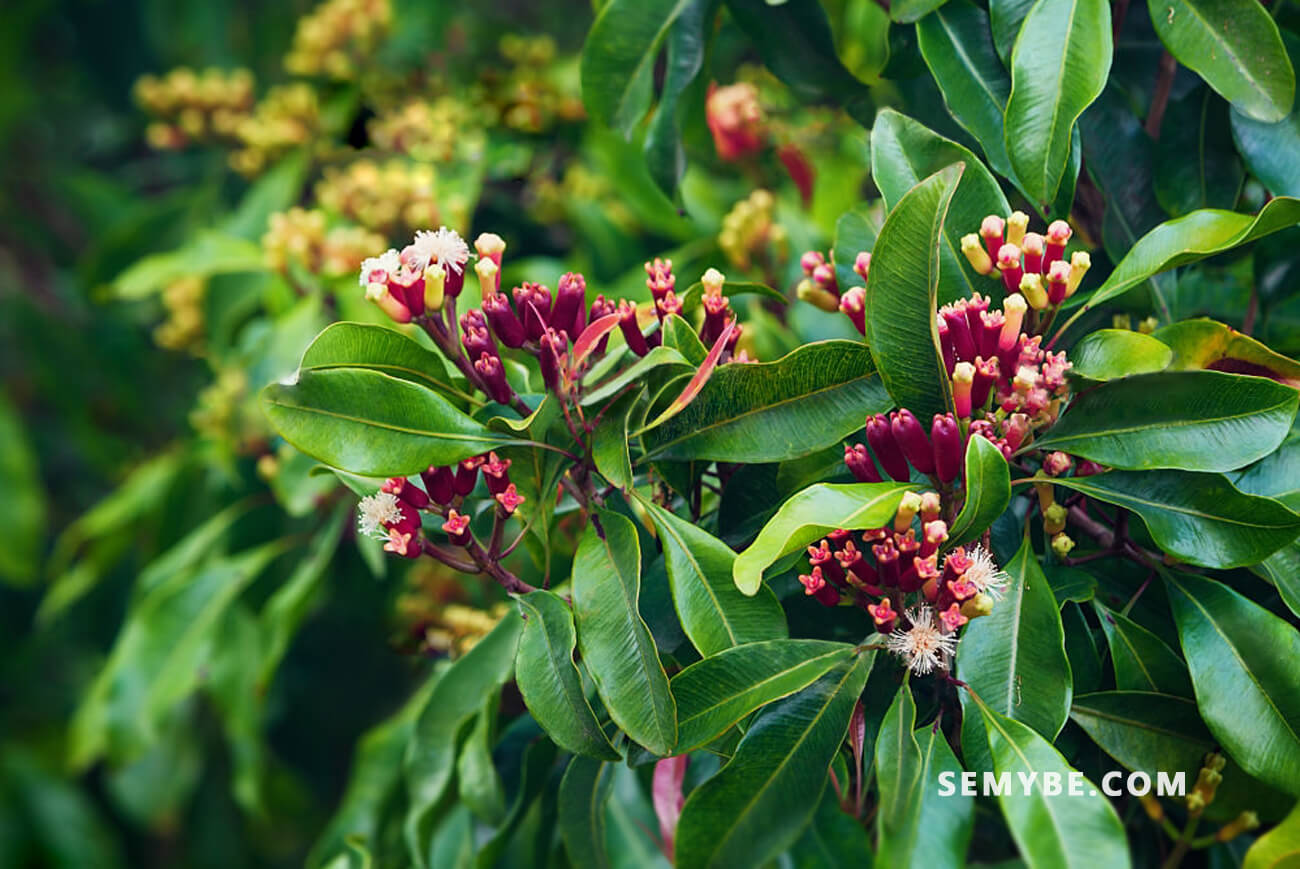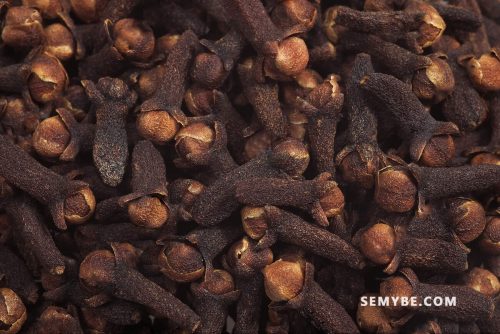
Eugenia Caryophyllata
1. History and use
From the Maluku Islands (Indonesia) and Philippines, cloves are grown in Tanzania, Madagascar, western India and Brazil. The clove is propagated by sowing in the spring or by cuttings in the summer. Twice a year, unhatched buds are picked during maturation and dried in the sun.
2. Description of the plant
The clove is a tree 20 m high, its leaves can measure up to 12 cm, and at the end of its branches there are many small white or pink flowers or corymbs (all the flowers are found on the same plane). All the peduncles and pedicels floral claws form. The pink flower buds are harvested before hatching: they are the cloves clove is composed of more than 15% d 70 to 90% eugenol, an antibacterial, antiseptic and antifungal compound, 9 to 15% eugenol acetate, 5 to 12% beta-caryophyllene and 2%. Other active agents are also present in smaller quantities, such as caryophyllene oxide, alpha- humulene and copaene (less than 1%), and traces of furfural and vanillin are found.

3. Curative action
- Internal use
Anti-inflammatory action, relieves muscular pains or rheumatism. Aphrodisiac Antibacterial actions Soothes urinary tract infections (kidney stones or cystitis). Attenuates the various upset stomachs: aerophagia, like bloating, very good local anesthesia, helpful in relieving coughing of viral diseases.
- External use
Antiseptic properties: cloves can be used to disinfect wounds, can also be used as a remedy for bad breath, and are also used against dental pain.
- Usual therapeutic indications
It is a local anesthetic, especially for dental pain, has antibacterial and antiviral action, relieves muscle pain, rheumatism and has anti- inflammatory properties. It is recognized for its action against urinary tract infections, such as cystitis or kidney stones. lt treats digestive disorders (bloating, aerophagia) restores energy and helps fight against fatigue, also an antidepressant.
Physical and intellectual stimulant, cloves have a stimulating action, as well in the cases of intellectual asthenia (loss of memory) as bodily. Considered as aphrodisiac, they stimulate and also increase the contractions of the uterus during the childbirth. Underestimates in the West cloves are only used in mouthwashes, their anesthetic effect is very effective in case of dental pain.
4. Uses
Against dental pain, make a mouthwash with 3 drops of essential oil in half a glass of warm water.
You can use a mixture of 2 drops of clove essential oil combined with vegetable oil of macadamia, to treat tonsillitis (massage of the sides of the neck), to calm a urinary or genital infection (in application on the lower abdomen), fight against fatigue (friction of the solar plexus) and in case of respiratory infection or bronchitis (on the upper back and chest). The same preparation will be used in case of viral hepatitis, with massages on the upper belly.
To reduce the dental pain, it is necessary to make friction on the level of the painful gums.




